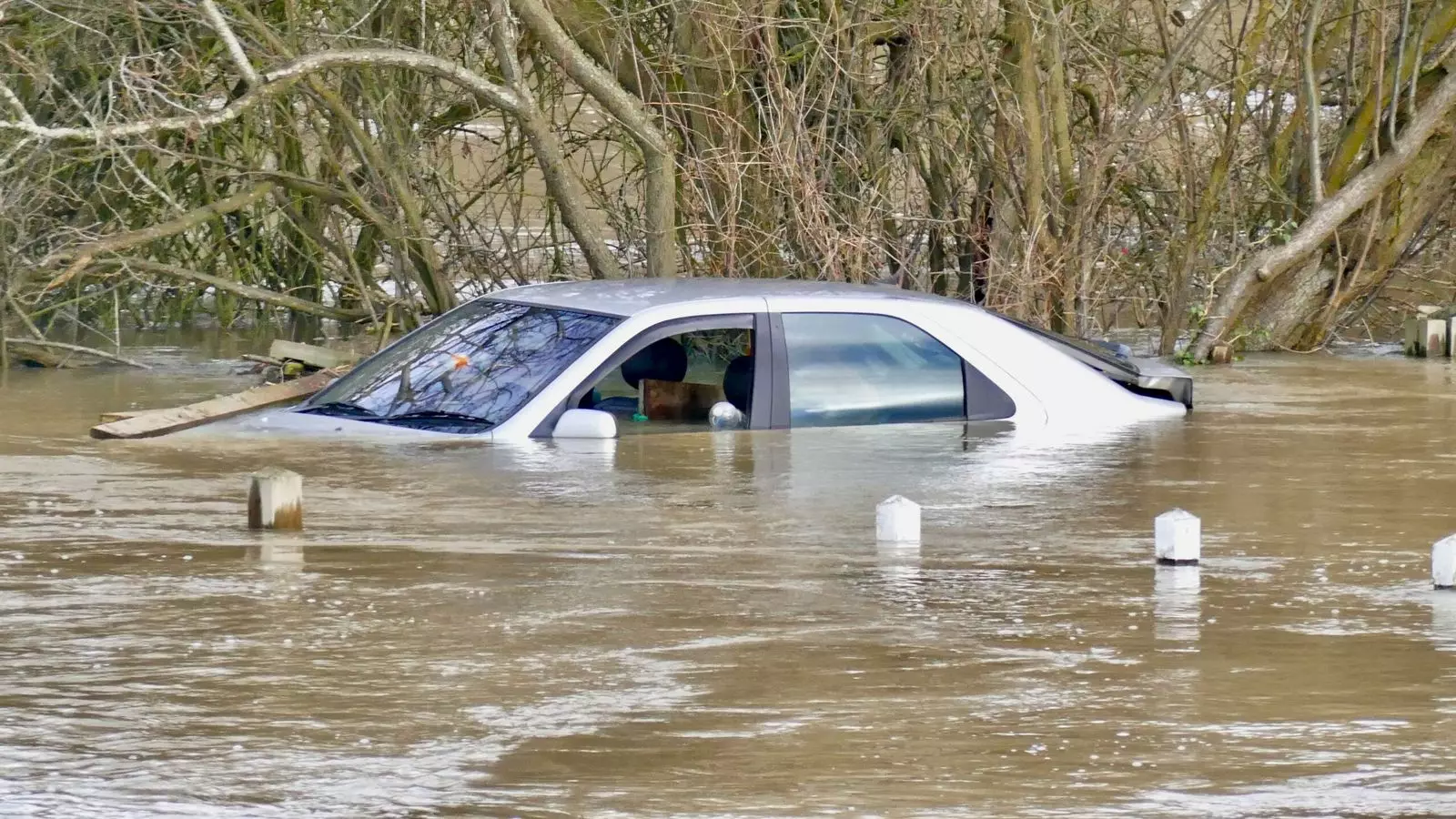With the recent occurrence of Storm Henk and the subsequent flooding, there is a growing concern over the frequency of extreme weather events and their connection to climate change. Despite the clear signs and warnings, the government has failed to adequately prepare for such storms. Mary Long-Dhonau, an advocate for flood resilience, asserts that the government needs to “wake up and smell the flood water” and take immediate action to address this pressing issue.
Ms. Long-Dhonau emphasizes the devastating impact of flooding, describing it as a violation of one’s home. The affected homeowners are left with the daunting task of managing a building site while their properties are repaired. This not only poses immense physical and emotional strain but also raises concerns about the long-term resilience of these homes.
Additionally, Ms. Long-Dhonau highlights the plight of farmers whose fields have been inundated with water. It is crucial for the government to provide greater support to the agricultural sector, which plays a vital role in our economy. Moreover, she emphasizes the need for natural flood management measures to be implemented nationwide to mitigate the impact of such events.
Recognizing the urgent need for support, the government has announced a financial package to assist areas in England that have experienced exceptional localized flooding. Flooded households can receive immediate financial aid of £500 to address immediate costs. Additionally, council tax relief for at least three months and grants of up to £5,000 to make properties more flood resilient in the future are available. Businesses that have been affected by the floods can also receive grants of up to £2,500 to aid in their reopening.
Furthermore, farmers who have suffered uninsurable damage to their land are eligible for financial assistance of up to £25,000. This aid is crucial in helping them recover from the devastation and ensuring the future viability of their farms.
While the rainfall has subsided, it is essential to remain vigilant as river levels continue to remain elevated. The Environment Agency has identified areas of concern, including the River Thames in Oxfordshire, the River Trent near Nottingham, and the River Severn, including Gloucester. These regions are at high risk of further flooding. As of now, there are still 192 flood warnings and 207 flood alerts in effect, indicating the possibility of flooding.
Emergency responders are working tirelessly to mitigate the impact of flooding by deploying temporary pumps, barriers, and defenses. However, the public must also play their part by refraining from driving through floodwater. The dangers of driving through flooded areas cannot be overstated, as even just 30cm of flowing water can be enough to float a car.
Looking ahead, there is some respite as the weather is forecasted to be mostly dry. Showery rain in the North and North East is expected to dissipate over time, with a few showers also predicted in the South and South East. As the fog clears, there will be some good sunny spells in other areas. However, it is important to note that daytime temperatures are likely to remain below 5C (41F) for many regions, prompting the UK Health Security Agency to issue a cold weather alert until Friday.
For now, the weather appears to be relatively settled, and the Met Office has not issued any warnings. However, it is crucial to remain vigilant and continue monitoring the situation closely, given the unpredictable nature of weather patterns.
In the face of increasingly frequent extreme weather events, especially flooding, it is imperative for the government to prioritize flood preparedness. The current flooding crisis has clearly revealed the need for immediate action and long-term planning to ensure the safety and well-being of affected communities. It is only through proactive measures, such as increased support for homeowners, farmers, and the implementation of natural flood management strategies, that the impact of future flooding can be mitigated. Climate change is an urgent matter, and the government must act decisively to protect its citizens, their homes, and the environment.

Leave a Reply